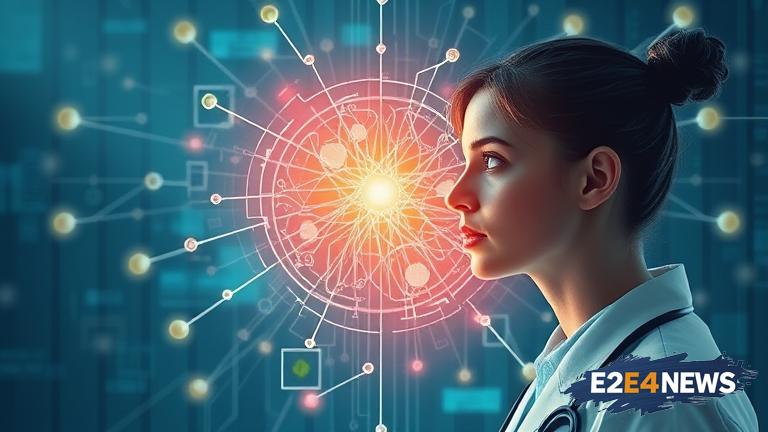The integration of artificial intelligence (AI) in healthcare has been a game-changer, offering a wide range of benefits that extend far beyond improved patient care. One of the most significant advantages of AI in healthcare is its ability to analyze vast amounts of medical data, identifying patterns and insights that human clinicians may miss. This enables healthcare professionals to make more accurate diagnoses and develop more effective treatment plans. AI-powered algorithms can also help identify high-risk patients, allowing for early interventions and preventative measures. Furthermore, AI-assisted chatbots and virtual assistants are being used to improve patient engagement and education, empowering individuals to take a more active role in their healthcare. Additionally, AI is being used to streamline clinical workflows, reducing administrative burdens and freeing up staff to focus on more critical tasks. The use of AI in medical research is also yielding promising results, with machine learning algorithms helping to identify new potential treatments and therapies. For instance, AI-powered systems are being used to analyze large datasets of medical images, such as X-rays and MRIs, to help diagnose diseases like cancer and Alzheimer’s. AI is also being used to develop personalized treatment plans, tailored to an individual’s unique genetic profile and medical history. This approach has shown significant promise in treating complex diseases like cancer, where traditional treatments often have limited success. Moreover, AI-powered systems are being used to monitor patient outcomes and adjust treatment plans accordingly, ensuring that patients receive the most effective care possible. The use of AI in healthcare is also improving patient safety, by reducing the risk of medical errors and adverse events. For example, AI-powered systems can help detect potential drug interactions and allergic reactions, alerting healthcare professionals to take corrective action. Another significant benefit of AI in healthcare is its ability to enhance accessibility, particularly in rural or underserved areas where healthcare resources may be limited. AI-powered telemedicine platforms are being used to connect patients with healthcare professionals remotely, reducing the need for in-person visits and improving health outcomes. Furthermore, AI is being used to develop innovative medical devices, such as robotic surgical systems and portable diagnostic tools. These devices are designed to improve the accuracy and efficiency of medical procedures, reducing recovery times and improving patient outcomes. The use of AI in healthcare is also driving innovation in the field of medical imaging, with AI-powered systems being used to develop new imaging modalities and enhance existing ones. For instance, AI-powered systems are being used to improve the resolution and accuracy of medical images, allowing healthcare professionals to diagnose diseases more effectively. Additionally, AI is being used to develop new medical imaging technologies, such as AI-powered ultrasound systems and AI-assisted MRI machines. The potential applications of AI in healthcare are vast and varied, and researchers are continually exploring new ways to leverage this technology to improve patient care. As the use of AI in healthcare continues to evolve, it is likely that we will see significant improvements in health outcomes, patient safety, and the overall quality of care. In conclusion, the benefits of AI in healthcare extend far beyond improved patient care, and its potential to transform the healthcare industry is vast and exciting. With its ability to analyze vast amounts of medical data, improve patient engagement, and enhance medical research, AI is poised to revolutionize the healthcare industry in the years to come.
